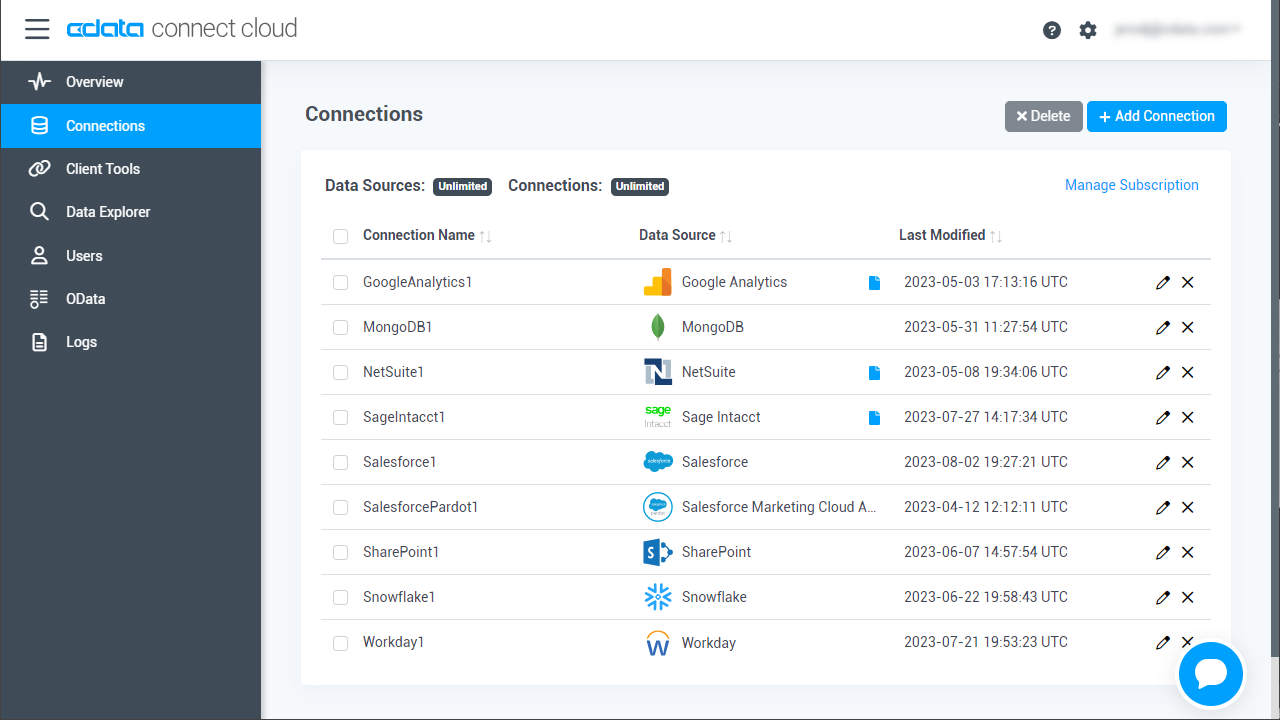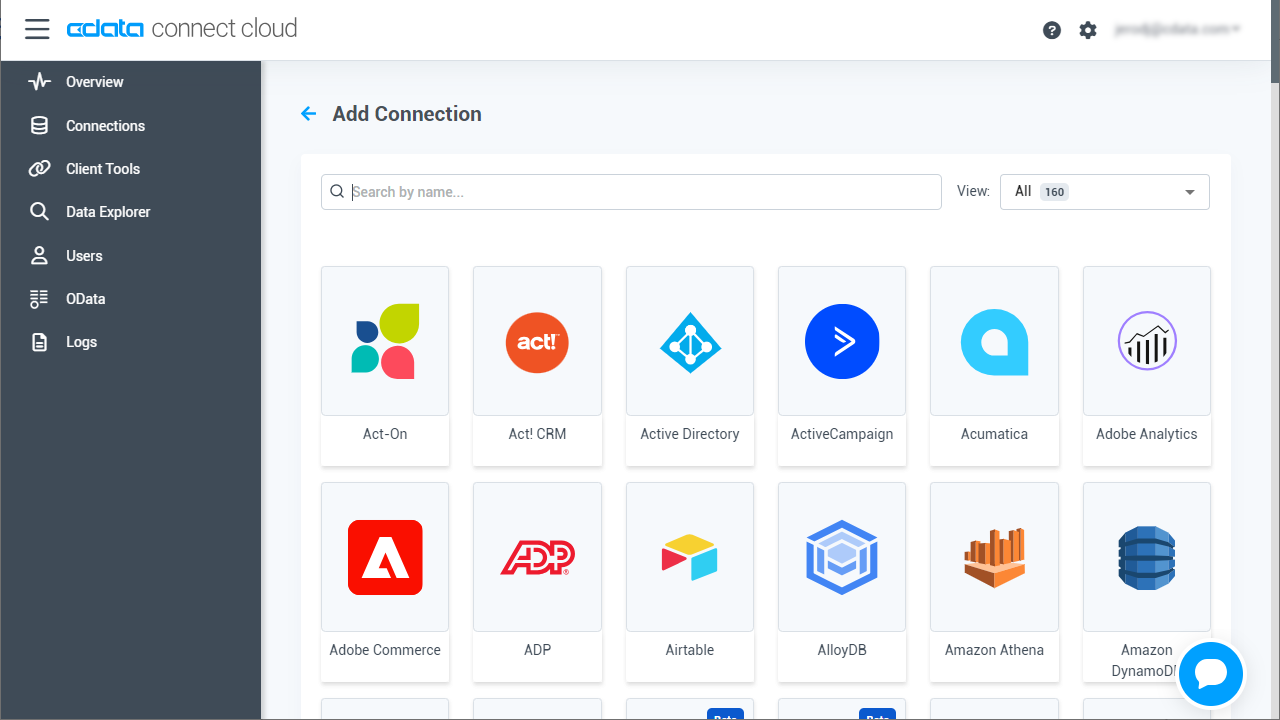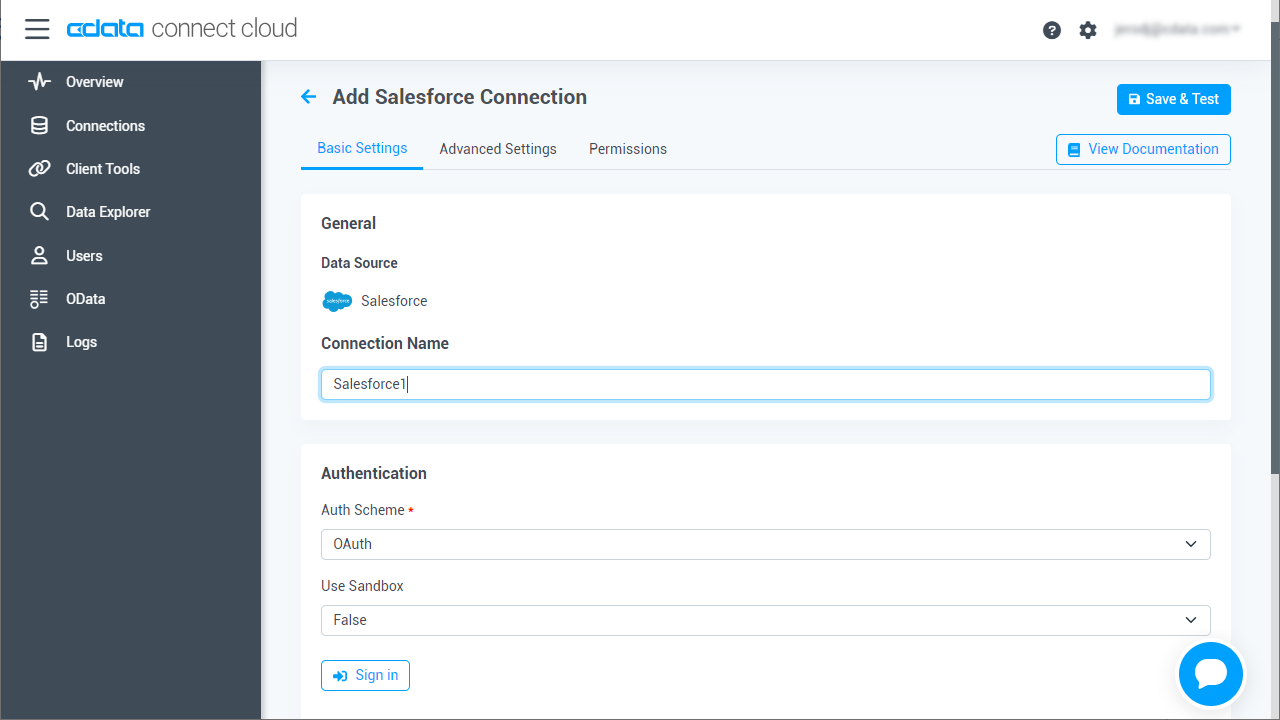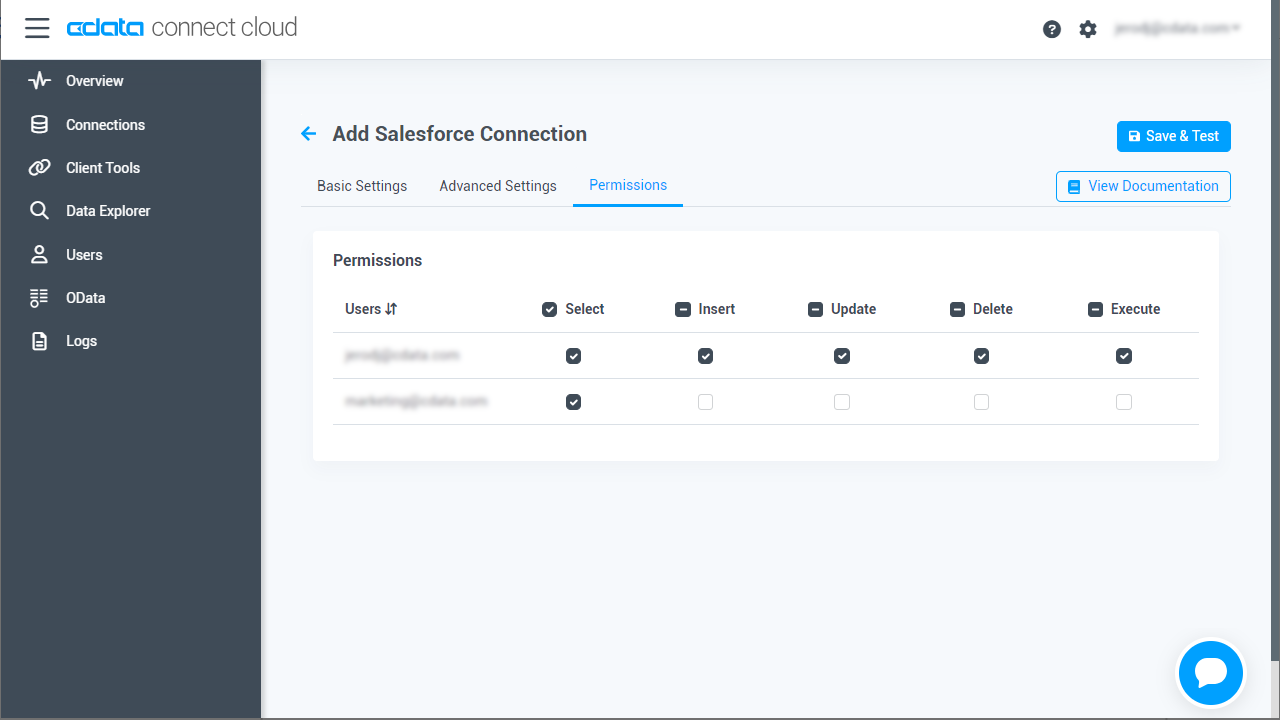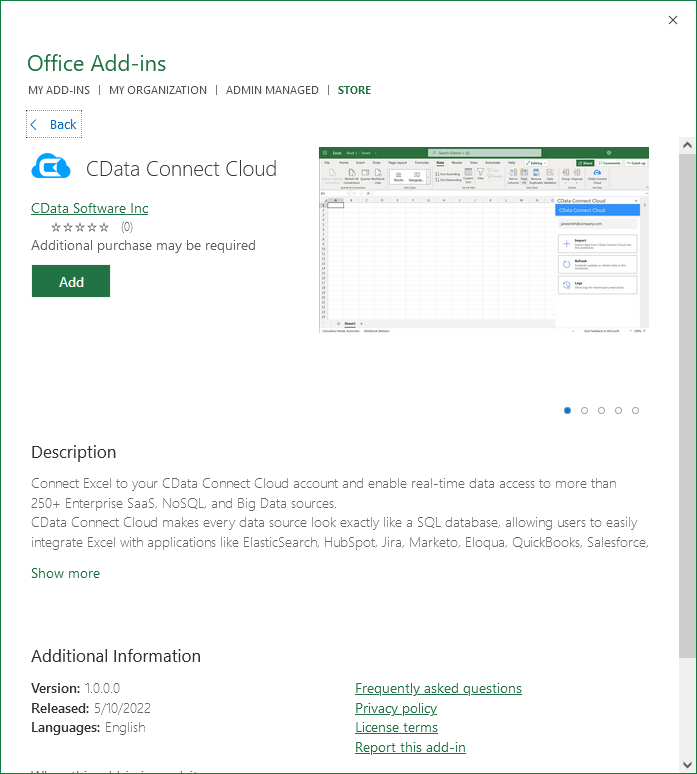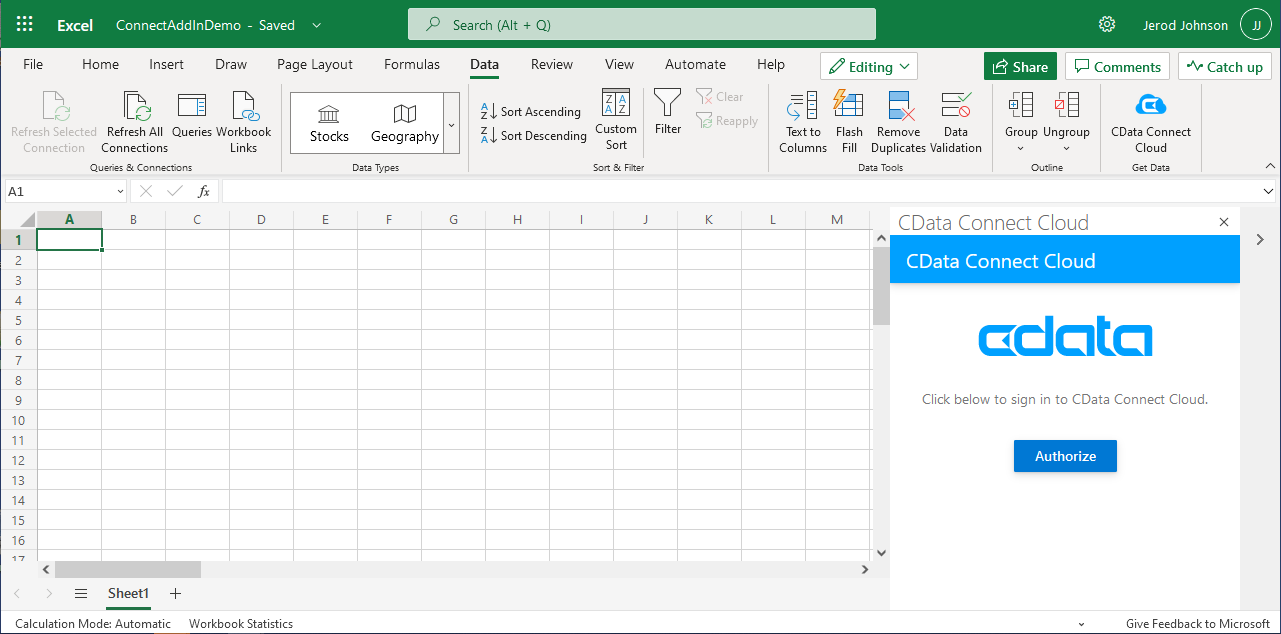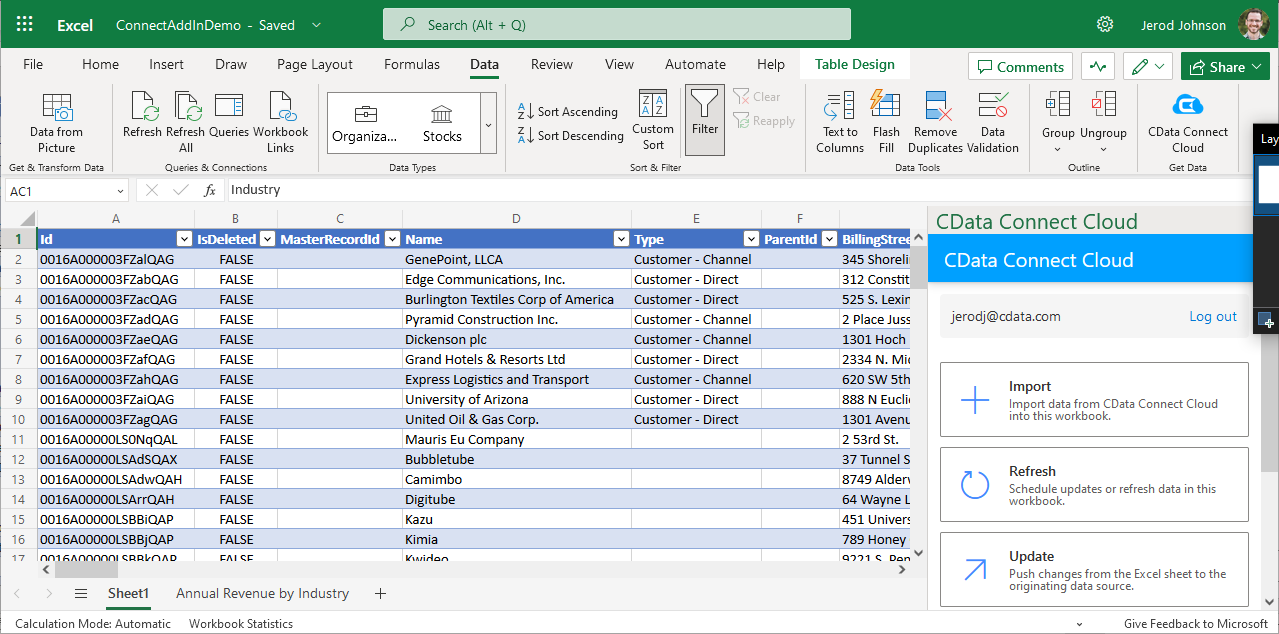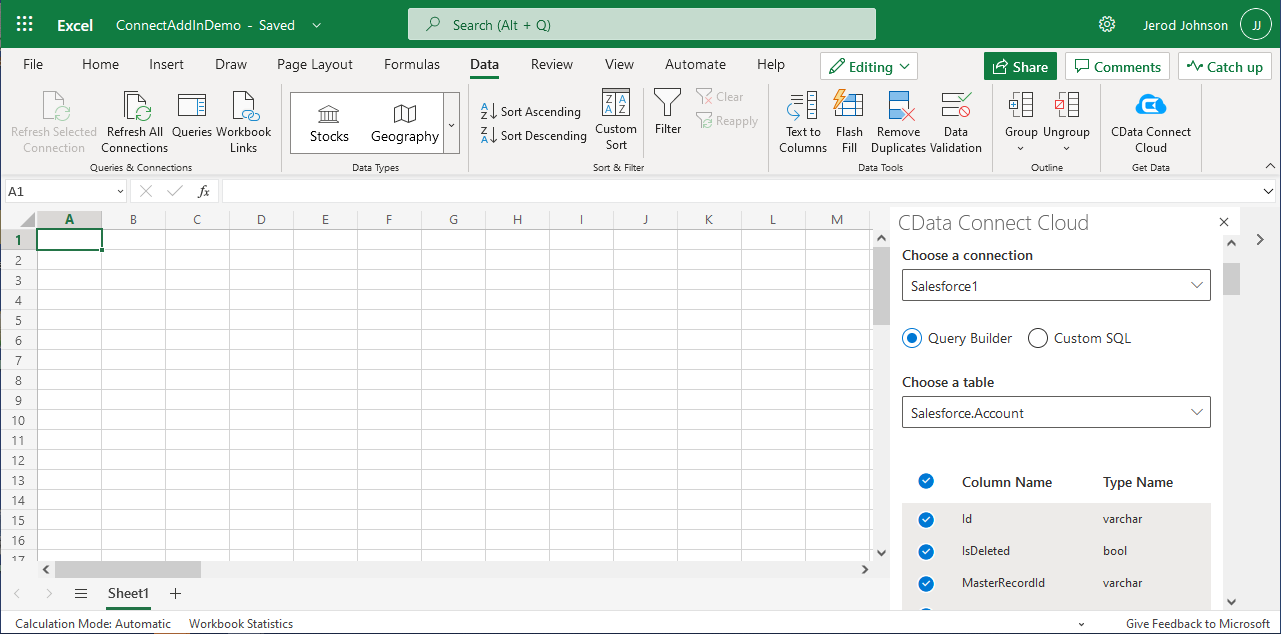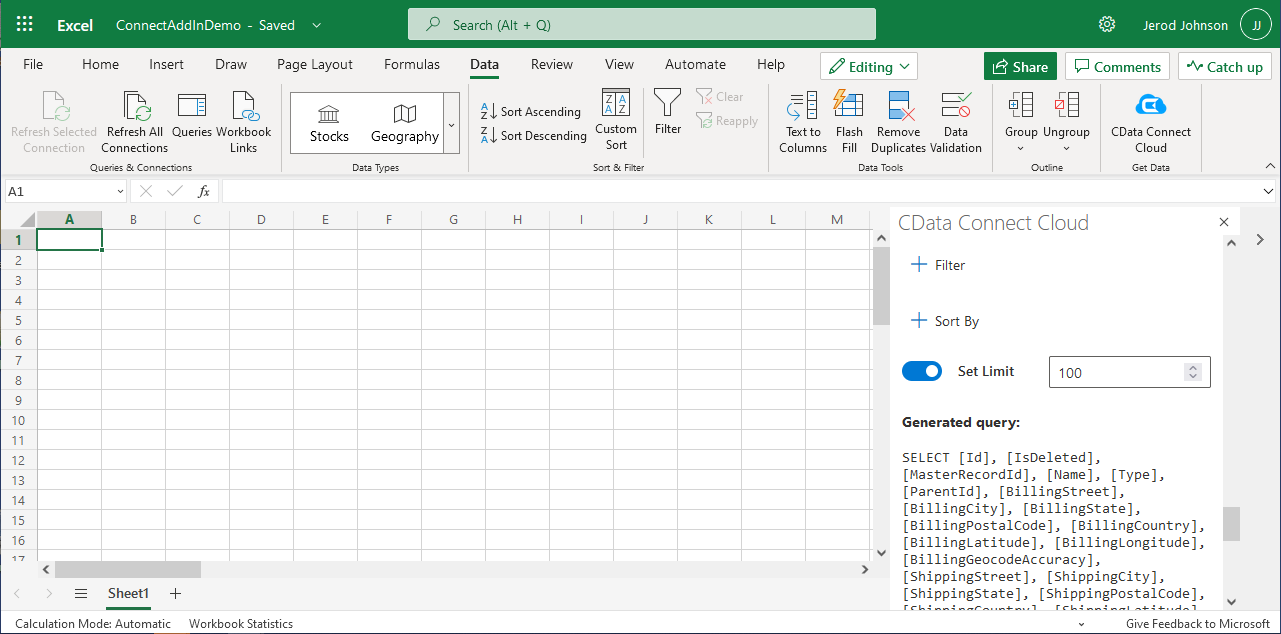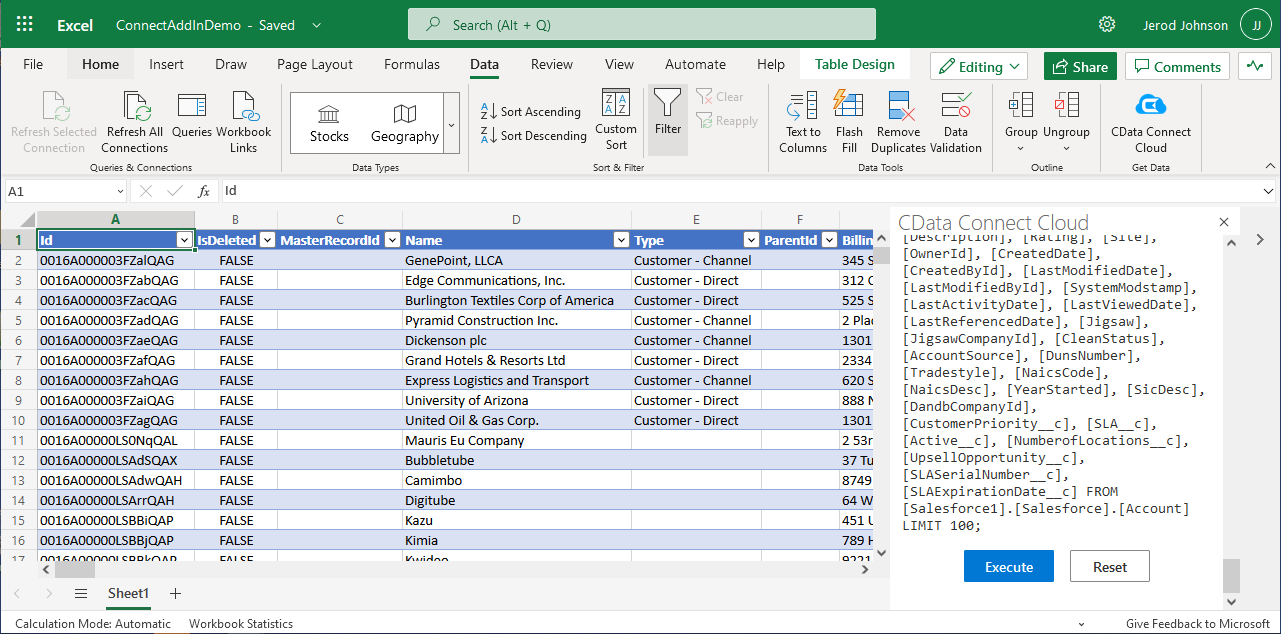Discover how a bimodal integration strategy can address the major data management challenges facing your organization today.
Get the Report →Access Live Workday Data in Excel 365 Online (Excel for the web)
Connect to Workday data from Excel 365 Online (Excel for the web) with CData Connect Cloud.
Microsoft Excel for the web represents a cloud-native iteration of Microsoft Excel. When integrated with CData Connect Cloud, you gain immediate access to Workday data directly from within Excel. This access facilitates data analysis, collaborative work, calculations, and more. This article provides a step-by-step guide on connecting to Workday within your Connect Cloud instance and accessing live Workday data in Excel for the web spreadsheets, whether for viewing or updating purposes.
CData Connect Cloud provides a pure cloud-to-cloud interface for Workday, allowing you to easily access live Workday data in Excel for the web. Simply use the Connect Cloud Add-In to query live data (or write your own). Using optimized data processing out of the box, CData Connect Cloud pushes all supported query operations (filters, JOINs, etc) directly to Workday, leveraging server-side processing to quickly return Workday data.
This setup requires a CData Connect Cloud instance and the CData Connect Cloud Add-In for Excel. To get started, sign up a free trial of Connect Cloud and install the free Connect Cloud Excel Add-In.
Configure Workday Connectivity for Excel
Connectivity to Workday from Excel is made possible through CData Connect Cloud. To work with Workday data from Excel, we start by creating and configuring a Workday connection.
- Log into Connect Cloud, click Connections and click Add Connection
![Adding a Connection]()
- Select "Workday" from the Add Connection panel
![Selecting a data source]()
-
Enter the necessary authentication properties to connect to Workday.
To connect, there are three pieces of information required: Authentication, API URL, and WSDL URL.
Authentication
To authenticate, specify your User and Password. Note that you must append your Tenant to your User separated by an '@' character. For instance, if you normally log in with 'geraldg' and your Tenant is 'mycompany_mc1', then your User should be specified as 'geraldg@mycompany_mc1'.
API URL
The API URL may be specified either directly via APIURL, or it may be constructed from the Tenant, Service, and Host. The APIURL is constructed in the following format: <Host>/ccx/service/<Tenant>/<Service>.
WSDL URL
The WSDLURL may be specified in its entirety, or may be constructed from the Service and WSDLVersion connection properties. The WSDLURL is constructed in the following format: https://community.workday.com/sites/default/files/file-hosting/productionapi/<Service>/<WSDLVersion>/<Service>.wsdl
![Configuring a connection (Salesforce is shown)]()
- Click Create & Test
- Navigate to the Permissions tab in the Add Workday Connection page and update the User-based permissions.
![Updating permissions]()
With the connection configured, you are ready to connect to Workday data from Excel for the web.
Access Live Workday Data in Excel for the web
The steps below outline connecting to CData Connect Cloud from Excel to access live Workday data.
- Log into Excel, create a new sheet (or open an existing one).
- Click Insert and click Office Add-ins. (if you have already installed the Add-In, jump to step 4).
- Search for CData Connect Cloud Add-In and install the Add-in.
![Install the Add-In]()
- Click Data and open the CData Connect Cloud Add-In.
- In the Add-In panel, click Authorize to authenticate with your CData Connect Cloud instance
![Authorizing the Add-In]()
- In the CData Connect Cloud panel in Excel, click Import
![CData Connect Cloud panel in Excel]()
- Choose a Connection (e.g. Workday1), Table (e.g. Workers), and Columns to import
![CData Connect Cloud panel in Excel]()
- Optionally add Filters, Sorting, and a Limit
![Choosing a Connection, Table, and Columns]()
- Click Execute to import the data
![Executing the Query]()
Live Access to Workday Data from Cloud Applications
New, you have a direct, cloud-to-cloud connection to live Workday data from your Excel workbook. You can add more data to your workbook for calculations, aggregations, collaboration, and more.
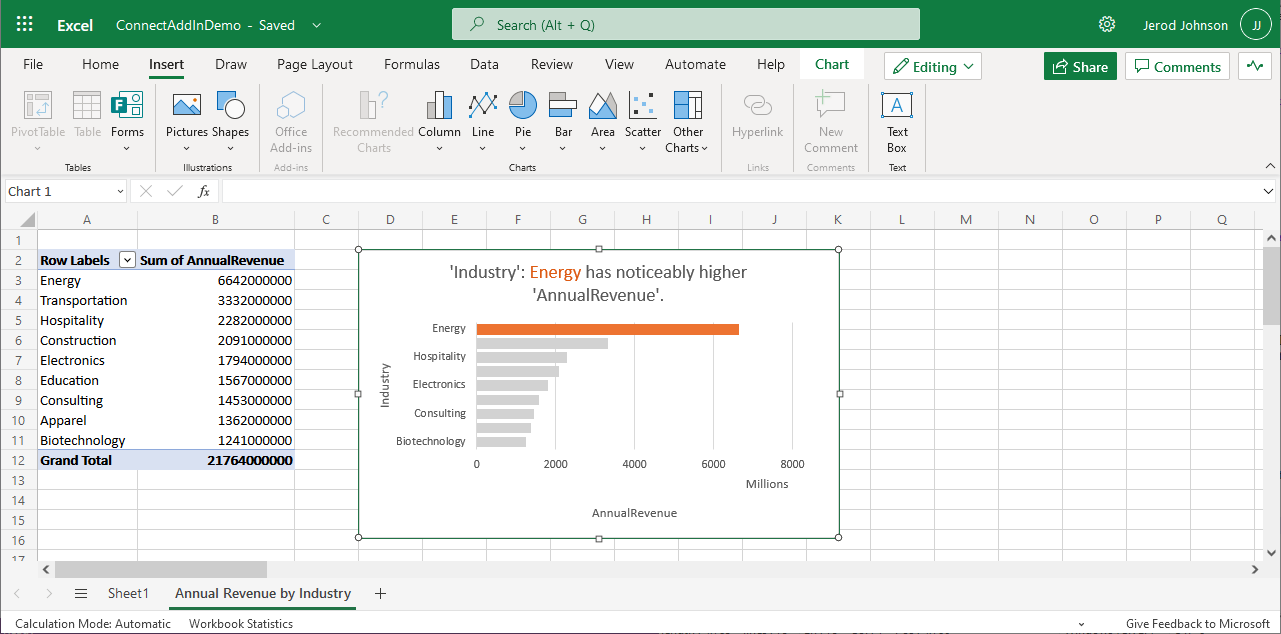
Try CData Connect Cloud and get real-time data access to 100+ SaaS, Big Data, and NoSQL sources directly from your cloud applications.






